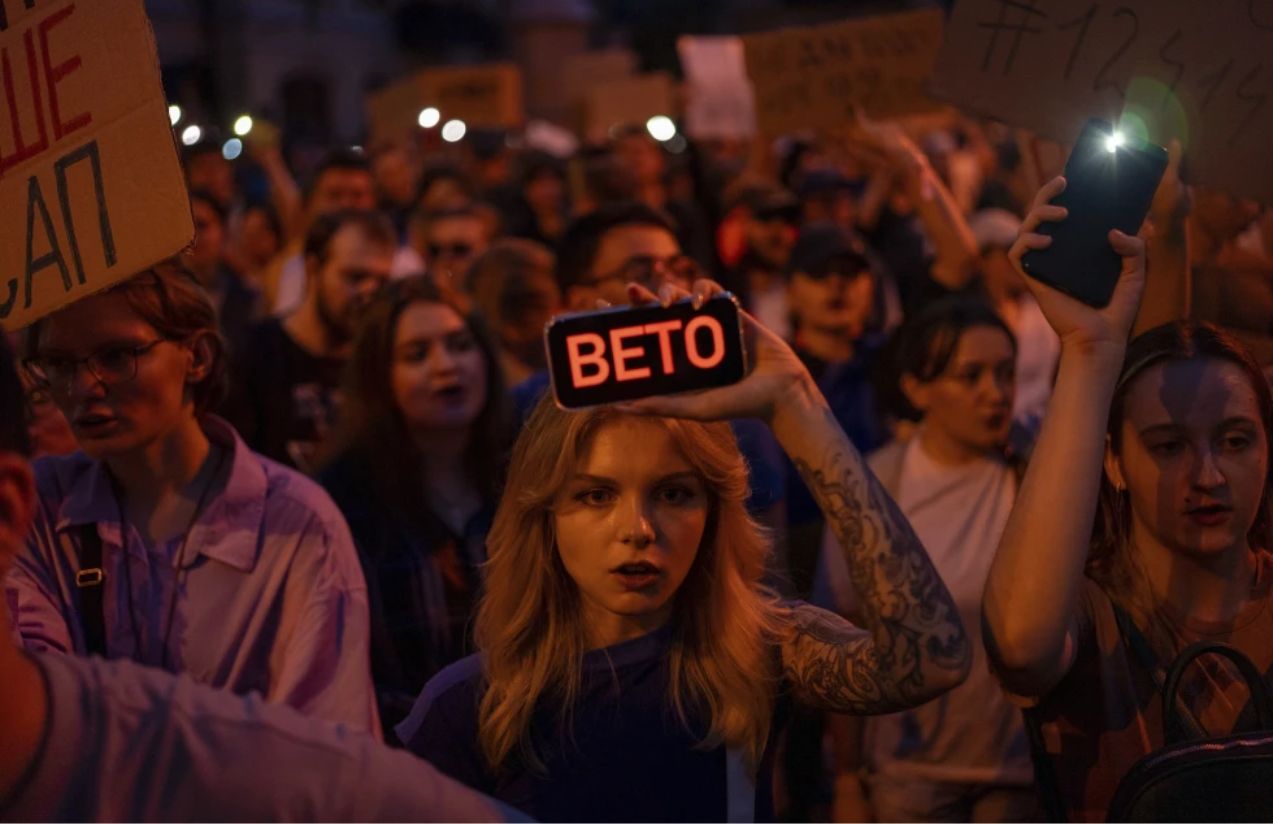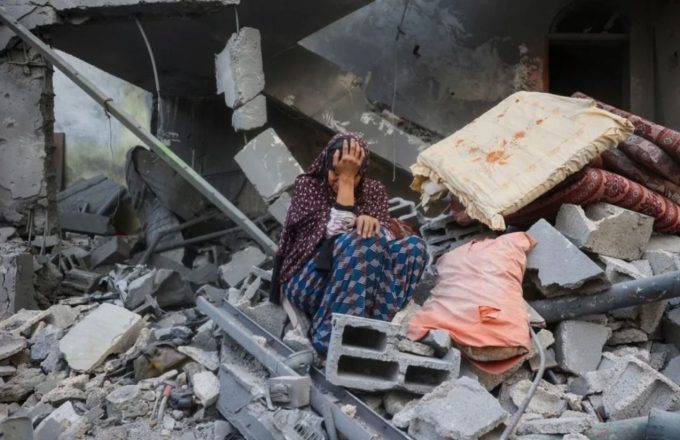Thousands of Ukrainians once again took to the streets on Wednesday to protest a controversial law that, according to activists and international organizations, undermines the independence of the country’s anti-corruption institutions. It marks the first major public demonstration against the government since the Russian invasion began more than three years ago.
The legislation, recently passed by parliament and signed by President Volodymyr Zelenskyy, has sparked strong criticism both domestically and abroad. European Union officials and human rights groups warn it could represent a significant setback for Ukraine’s democratic and judicial reforms.
Facing growing public discontent and the risk of losing popular support at a critical stage of the war, Zelenskyy convened an emergency meeting on Wednesday with the heads of Ukraine’s top security and anti-corruption agencies.
“We clearly hear what society is saying,” the president wrote on his Telegram channel after the meeting. Nevertheless, he defended the new law as a necessary tool to accelerate legal proceedings and more forcefully punish those who undermine the state. “Criminal cases must not drag on for years without verdicts, and those who work against Ukraine must not feel safe or immune from punishment,” he said.
Zelenskyy stated that all relevant agencies had agreed to cooperate and will present a detailed joint action plan within two weeks. The plan aims to strengthen institutions, remove legal obstacles, and respond to public demands for transparency and justice.
Protests intensified after Zelenskyy signed the bill despite widespread appeals for a veto. On Tuesday night, thousands gathered in Kyiv and other cities to urge the president to reject the measure. Once the law was enacted, activists called for another demonstration in central Kyiv at 8 p.m. Wednesday, widely promoted on social media.
The law increases government oversight over two key anti-corruption bodies—an adjustment critics say threatens their independence and gives Zelenskyy’s inner circle greater influence over investigations.
From Brussels, EU Enlargement Commissioner Marta Kos voiced her “serious concern” over the parliamentary vote in a post on X, calling it “a major step backward.”
Similarly, the Ukrainian branch of Transparency International condemned the move, saying it undermines one of the most important reforms since Ukraine’s 2014 Revolution of Dignity and damages trust with international partners. The organization accused authorities of “dismantling the country’s anti-corruption architecture.”
Fighting entrenched corruption remains a key requirement for Ukraine’s bid to join the EU and a condition for continued access to billions of dollars in Western aid amid its war with Russia.
Zelenskyy, for his part, insisted the law removes “Russian influence” from the anti-corruption effort and ensures punishment for those found guilty, following what he described as years of delay in criminal cases involving vast sums of money.
In Moscow, officials reacted with ridicule. Russian Foreign Ministry spokeswoman Maria Zakharova mocked Zelenskyy’s claims about Russian infiltration in Ukraine’s anti-corruption agency, sarcastically suggesting, “They might as well pull a couple of bears out from the corner.”
Meanwhile, internal tensions continue to mount in a nation facing the dual challenge of resisting a full-scale invasion while striving to consolidate its democracy.




















